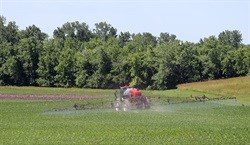
Prof Hall was referring to the final policy proposals on "Strengthening the relative rights of people working on the land".
She said until recently farm workers were not important in national politics. "Suddenly a month before elections‚ government is talking to farm workers‚" she said.
Rural Development and Land Reform Minister Gugile Nkwinti released the proposal on March 31.
The aim of the draft policy is to find a way to speed up land reform in an equitable manner‚ and as a partial means to reverse the historic effect of the 1913 Land Act that confined the majority of black South Africans to 13% of rural land.
Parliament has passed the law to allow the reopening of land claims‚ expected to start by June.
The draft policy was met with dismay by commercial agricultural representative bodies such as the Transvaal Agricultural Union and AgriSA. They described it as unfair to farmers and unworkable.
The Congress of South African Trade Unions has cautiously welcomed the policy‚ which proposes a system of equity sharing on commercial farms.
Each farm owner would retain 50% ownership of the farm‚ and cede 50% to workers.
Workers acquire equity shares in the farm depending on their length of service‚ and 50% of the equity in the business would be compulsorily acquired by the state.
Allocation of equity among workers should be on the basis of the duration of "disciplined service"‚ but "disciplined" service is not defined.
Workers who have been employed for 10 years get 10% of the workers' half of the business - i.e. 5%‚ shared among them.
Those employed for 25 years get 25% of the workers' half - 12.5%. Those employed for 50 years get 50% of the workers' half - 25%.
Prof Hall said: "There's a big difference. The equity of an operational farm is often many times that of the land. Either way‚ this will constitute expropriation‚ for which‚ under the constitution‚ just and equitable compensation has to be provided." She said it was safe to say that the policy assumes payment of compensation.

For more than two decades, I-Net Bridge has been one of South Africa’s preferred electronic providers of innovative solutions, data of the highest calibre, reliable platforms and excellent supporting systems. Our products include workstations, web applications and data feeds packaged with in-depth news and powerful analytical tools empowering clients to make meaningful decisions.
We pride ourselves on our wide variety of in-house skills, encompassing multiple platforms and applications. These skills enable us to not only function as a first class facility, but also design, implement and support all our client needs at a level that confirms I-Net Bridge a leader in its field.
Go to: http://www.inet.co.za